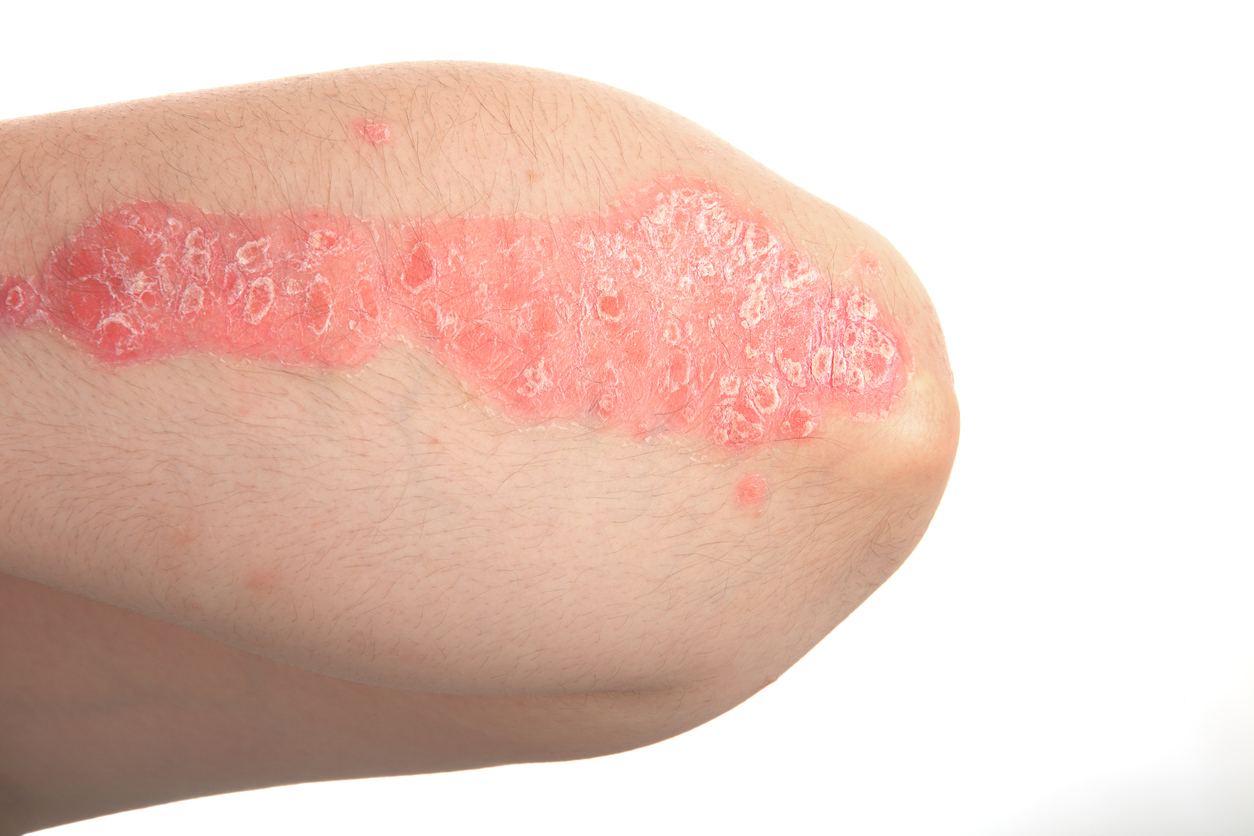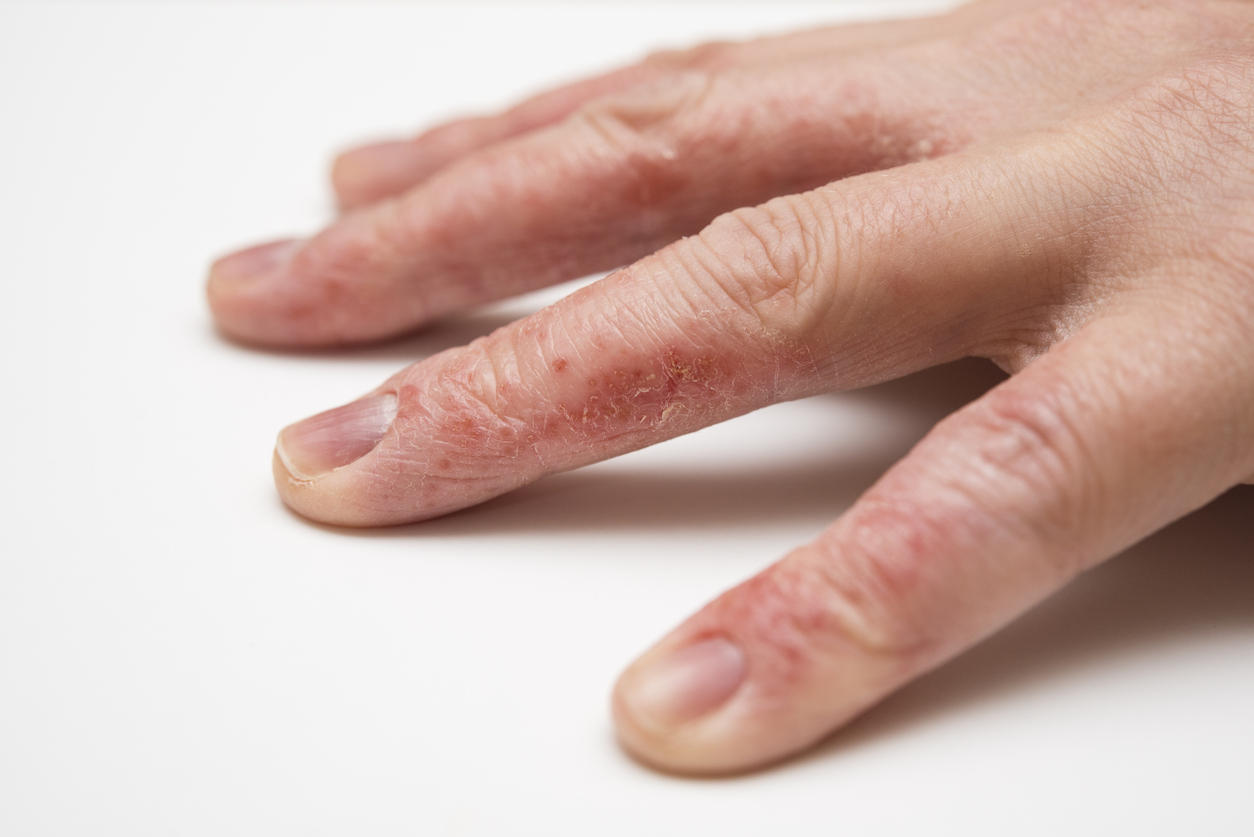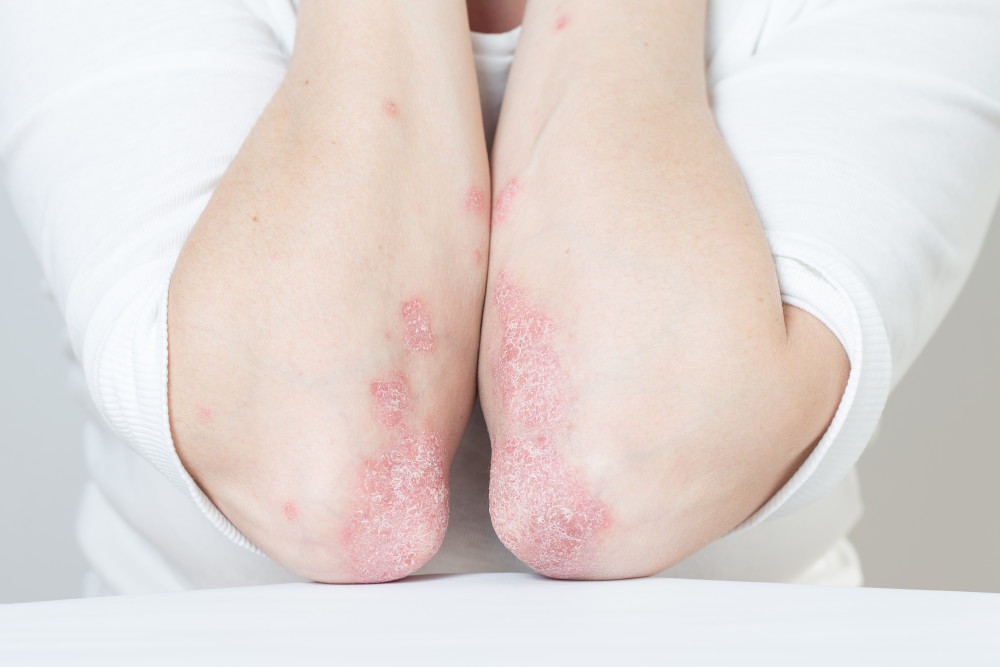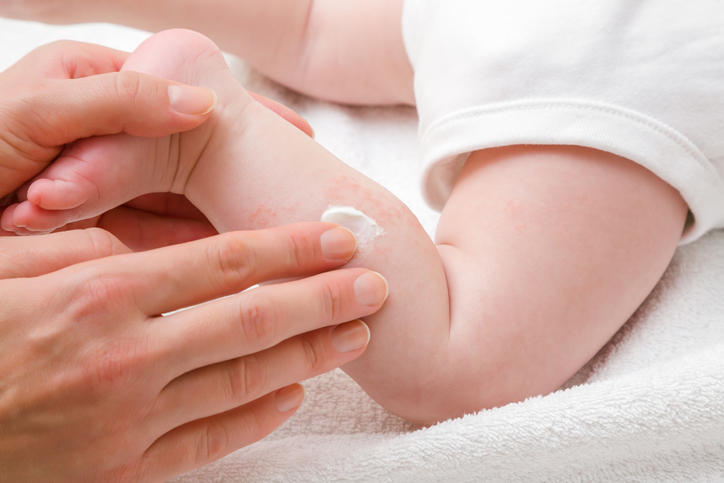It can be hard to tell the difference between psoriasis and eczema. Both conditions cause itchy, red patches on your skin, and studies show that even doctors can sometimes struggle to tell them apart.
But there are important differences between them.
Eczema is a long-term condition that’s thought to affect around 10% of young adults. It normally develops in childhood and can be triggered by irritants like certain soaps, dust or pollen.
Psoriasis is an autoimmune condition that makes your body produce new skin cells more quickly than usual. It tends to run in families and can be triggered by things like stress, certain medications or injury to the skin, such as sunburn.
Psoriasis can cause a ‘scaly’ rash and is distinct from eczema in terms of its appearance, location and intensity.
Here we explore some of these differences in more detail.
Appearance
Eczema and psoriasis both cause itchy, red patches, but the 2 conditions can look quite different.
Psoriasis causes thick, raised areas of dry red skin that are often covered with silvery-white scales. In severe cases the skin around your joints may bleed or crack.
The edges of the rash are normally well-defined, and you’ll be able to feel where the rash starts by running your finger over your skin.
In contrast, eczema looks like an inflamed rash that blends into your skin towards the edges. The skin affected by eczema may be cracked or weeping if you’ve been scratching it.
Eczema can also cause small water blisters to form on your skin, and some people notice that the affected area changes colour, becoming darker or lighter than the surrounding skin.

Location
Eczema tends to develop in places where skin touches skin, such as the back of the knees and the inside of the elbows. It’s also common for eczema to appear on your wrists, neck, face or ankles. But it can appear on any part of your body.
Psoriasis, however, normally affects skin surfaces on the outside of joints, which means you’re more likely to see symptoms on the outer part of your elbows, the front of your knees, your lower back or scalp.
But there are some exceptions to this. A type of psoriasis called inverse psoriasis can cause rashes in your armpits or groin.
Because the location can vary, doctors will look at the intensity and appearance of your symptoms before making a diagnosis.

Intensity
Eczema can make your skin feel very dry and itchy, and the itchiness can be so severe that it interferes with your sleep. You won’t usually experience any pain with eczema, unless your skin becomes infected.
Psoriasis can be mild, moderate or severe, depending on how much of your body is affected. It can make your skin feel painful, itchy, tight or like it’s burning.
Should I see a doctor for psoriasis or eczema?
If you think you have psoriasis or eczema, see a doctor for guidance. There are various treatments available for both conditions, including topical creams and oral medications.





